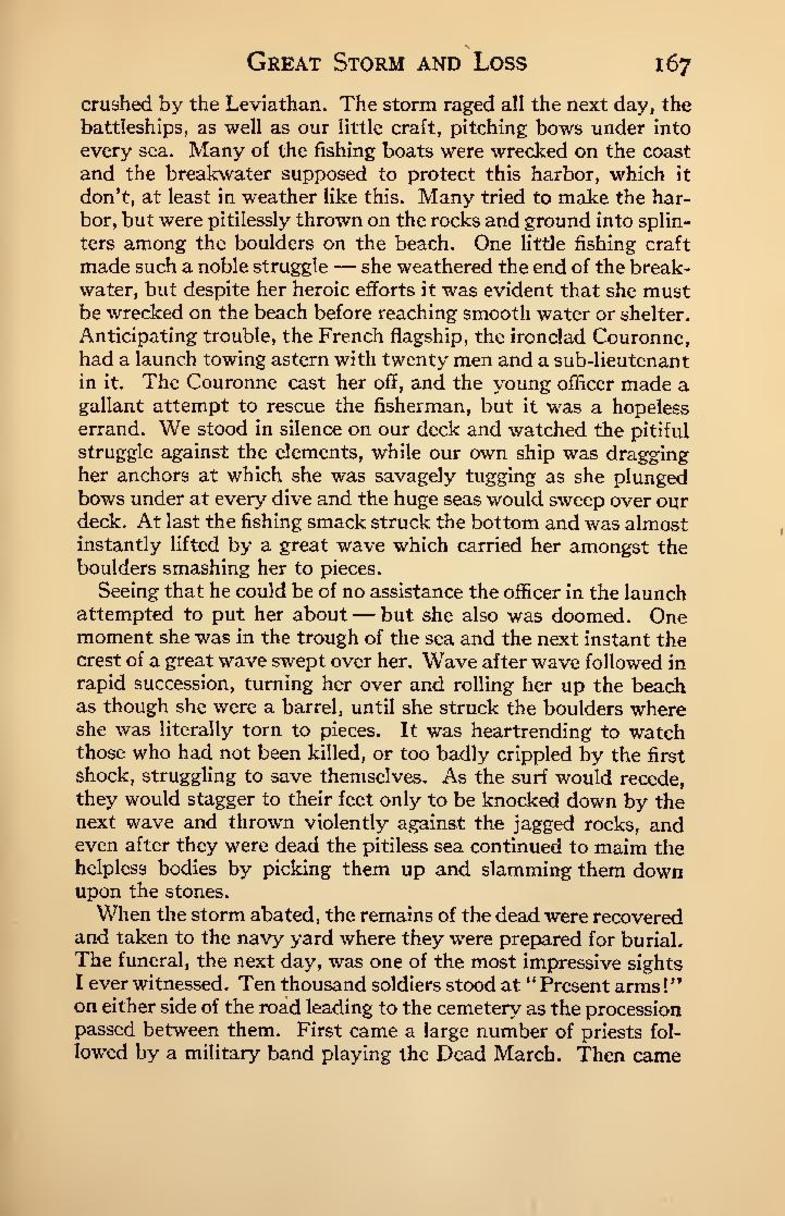crushed by the Leviathan. The storm raged all the next day, the battleships, as well as our little craft, pitching pitching bows under into every sea. Many of the fishing boats were wrecked on the coast and the breakwater supposed to protect this harbor, which it don't, at least in weather like this. Many tried to make the harbor, but were pitilessly thrown on the rocks and ground into splinters among the boulders on the beach. One little fishing craft made such a noble struggle—she weathered the end of the breakwater, but despite her heroic efforts it was evident that she must be wrecked on the beach before reaching smooth water or shelter. Anticipating trouble, the French flagship, the ironclad Couronne, had a launch towing astern with twenty men and a sub-lieutenant in it. The Couronne cast her off, and the young officer made a gallant attempt to rescue the fisherman, but it was a hopeless errand. We stood in silence on our deck and watched the pitiful struggle against the elements, while our own ship was dragging her anchors at which she was savagely tugging as she plunged bows under at every dive and the huge seas would sweep over our deck. At last the fishing smack struck the bottom and was almost instantly lifted by a great wave which carried her amongst the boulders smashing her to pieces.
Seeing that he could be of no assistance the officer in the launch attempted to put her about—but she also was doomed. One moment she was in the trough of the sea and the next instant the crest of a great wave swept over her. Wave after wave followed in rapid succession, turning her over and rolling her up the beach as though she were a barrel, until she struck the boulders where she was literally torn to pieces. It was heartrending to watch those who had not been killed, or too badly crippled by the first shock, struggling to save themselves. As the surf would recede, they would stagger to their feet only to be knocked down by the next wave and thrown violently against the jagged rocks, and even after they were dead the pitiless sea continued to maim the helpless bodies by picking them up and slamming them down upon the stones.
When the storm abated, the remains of the dead were recovered and taken to the navy yard where they were prepared for burial. The funeral, the next day, was one of the most impressive sights I ever witnessed. Ten thousand soldiers stood at "Present arms on either side of the road leading to the cemetery as the procession passed between them. First came a large number of priests followed by a military band playing the Dead March. Then came
